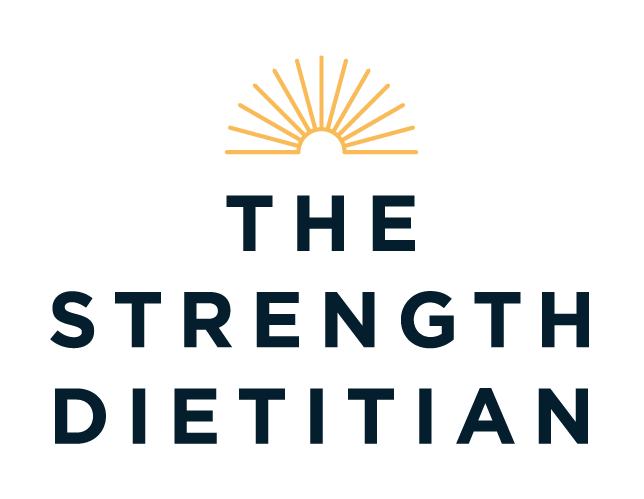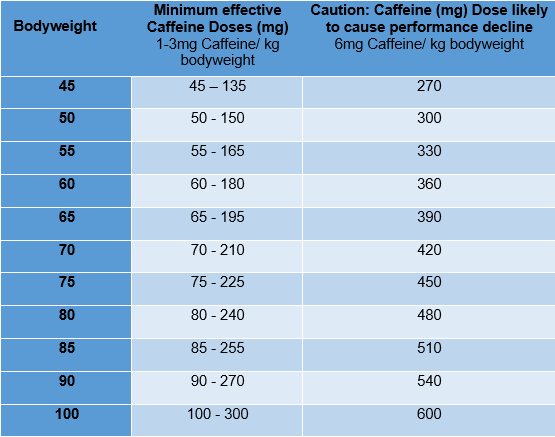Pre-workout Supplements For Powerlifters: A Dietitian’s Comprehensive Guide and Review of Australia’s Top 3 Pre-Workouts
Contents:
Pros & Cons of Pre-workout supplementation for Powerlifters
Active Ingredients in Pre-workout to look out for
Australia’s Top 3 Pre-Workout Supplements Reviewed
How to Use Pre-workouts safely and effectively
FAQS on Pre-workout Supplements for Powerlifters
Should you take a pre-workout for powerlifting? Is it even effective?
Pre-workouts do work! The use of pre-workouts prior to training sessions has positive impacts on muscular endurance, mood and can lead to increased muscle mass over time.
Most pre-workouts on the market also advertise their ability to give you a massive pump and unbreakable focus, however, these effects are less reliable and can vary between brands depending on the active ingredients present.
Pros of Pre-workout for Powerlifters
Increased Muscular Endurance & Total Volume: While supplementing with a pre-workout won’t increase your 1RM (1 rep max) or force production, it can increase the total volume you can complete in a session. This increased volume can have meaningful impact on your 1RM and training adaptations when used long-term.
Improved focus and Alertness: One of the biggest benefits to pre workout is that it reduces your perception of fatigue, pain and effort. This helps increase time to exhaustion and performance. After a long day at work, it helps you get under the barbell and do the work.
Side Effects of Pre-workout for Powerlifters
Sleep: Pre-workout can disrupt sleep by making it more difficult for you to fall asleep and decrease your total sleep time. Impaired sleep can reduce muscle building and recovery which can impair your next training session. It’s not worth sacrificing sleep for one good session (unless it’s your actual competition day).
Potential for contamination: If you’re competing in a drug tested federation, the potential of being banned from powerlifting because you took a supplement without researching it first - just isn’t worth it! Look for supplements certified by HASTA or Informed Sport to ensure the muscle gain and pre workout supplements you’re taking don’t contain banned substances.
Stomach discomfort, Nausea, Heart Palpitations and Jitteriness: A huge mistake that new powerlifters make is that they get overhyped on caffeine. While I would absolutely use pre-workout or your regular source of caffeine on comp day, taking too strong of a dose can actually impair your performance and distract you from your lift. Heart palpitations and jitteriness can heighten that sense of anxiety which for some powerlifters can make or break their final attempt.
If you find that your pre-workout is giving you a stomach ache and making you run to the bathroom, it might be that the caffeine dose is too high. It could also be from the artificial sweeteners inside the pre-workout which may cause problems for individuals with IBS.
What ingredients to look out for in a pre-workout supplement?
1. Caffeine: The main ingredient that all pre-workouts feature is caffeine. It has a solid evidence base for improved performance, enhanced concentration, reduced perceived effort and fatigue. It is effective across the board for strength training, endurance and skill-based sports. The minimum effective dose for most individuals is 1-3mg of caffeine per kg of body weight. This varies depending on your sensitivity and tolerance to caffeine. Excessive caffeine can cause jitteriness, over-arousal, heart palpitations and stomach upset.
While there is no agreed-upon upper limit for caffeine, exceeding 6 mg of caffeine per kg of body weight is likely to lead to decline in performance. You can read more about how to use caffeine for powerlifting in my article here.
2. Creatine: Another supplement that stands the test of time is creatine monohydrate. Creatine is particularly great for powerlifting because it assists with rapid energy production for activities that are high in intensity and brief in duration (less than 30 seconds) . This results in improved performance, increased muscle mass and less fatigue.
Important to note: creatine is not time sensitive. It does not have to be taken before your workout and will be effective when taken consistently, regardless of time of day. It may be convenient and more bearable taste-wise to have a pre workout with creatine. However, it is likely more cost-effective to purchase creatine and caffeine separately.
3. Beta-alanine: While B-alanine is one of the newer kids on the block, there is still a solid evidence base for it’s benefits. When we workout, we produce lactic acid which breaks down into lactate and hydrogen ions. This is what causes the burning feeling as you grind out the last reps on the leg extension. Beta-alanine is an amino acid that helps produce carnitine in the muscles. Carnitine works as a buffer to counteract the hydrogen ions. This can improve training capacity and reduce fatigue during high intensity training. In order to reap the benefits from a pre workout with Beta-alanine, look for 4-6 g β-alanine per serve.
The benefits of Beta alanine and creatine are best achieved by daily supplementation which means that unless you’re training daily and taking your pre-workout every day, then the extras, don’t give you an edge without further supplementation.
A review of the most popular pre-workouts supplements in Australia by a dietitian and powerlifter.
Please note: none of these products are sponsored or endorsed. Please check with your GP and dietitian for personalised advice before starting any supplements.
Redcon1 Total War Pre Workout
Main active ingredients: 320mg of caffeine, 6g citrulline malate , 3.2g beta alanine
$43 for 30 serves
Caffeine: Well above minimum effective dose of caffeine for most individuals. Effective for powerlifters and strength athletes with a high tolerance to caffeine.
Beta-alanine: Inadequate dosage - most individuals would need more additional supplementation to improve training capacity.
Citrulline malate: The most common dose is 8g within the scientific literature but 6-12g is still used. Therefore, there is a potential benefit from Citrulline Malate in the RedCon1 Total War pre workout but it may be inadequate for some.
Recommended to take 12 weeks on and 4 weeks off to avoid increasing tolerance which will result in reduced perceived impact of your usual dosage.
2. Ghost Legend Pre-Workout
Main active ingredients: 250mg Caffeine, 4g L-Citrulline, 3.2g Beta-alanine, 1000mg L-tyrosine, 1.5g Nitrosigine
$45 for 25 serves
L-Citrulline: Ghost Legend’s Pre-workout packs a powerful dose of Vegan-Fermented L-Citrulline. Studies have shown that doses over 3g of L-citrulline can lead to small improvements in strength and power performances in resistance training sets or sprints lasting less than 30 seconds. L-citrulline, however, has been less studied and has a weaker evidence base than Citrulline Malate.
Beta-Alanine: similar dose to RedCon 1 Pre-workout. Unlikely to provide adequate beta-alanine for most individuals to see performance benefits.
Caffeine: Adequate dose to see performance benefits for most individuals.
L tyrosine - not enough evidence to support that there is benefits of L-tyrosine to strength athletes. Weak evidence to suggest it may benefit cognitive performance but still not enough to support the use of this as an active ingredient in pre-workouts.
3. Dragon’s Breath
Main active ingredients: 350mg Caffeine, 400mg L-tyrosine, 1000mg of Betaine Anhydrous, 0.5g Nitrosigine, 0.03mg Vitamin B12
$70 for 30 serves
Caffeine: A strong dose of caffeine - not for the faint -hearted. The equivalent of 5.5 shots of coffee for powerlifters who have a strong tolerance to caffeine.
L-Tyrosine: Weak evidence to support it’s use in strength performance.
Nitrosigine: While the Nitrosigine will give you a pump from increased blood flow, it is unlikely to have meaningful impact on performance and muscle gain
Betaine": latest review show a lack of evidence for the use of betaine for improve strength, performance or body composition. There is limited clinical trials in men with conflicting results with potential but modest strength and power-based performance improvements in bodybuilders and cyclists.
Vitamin B12: Due to its role in energy metabolism, vitamin B12 is often promoted as an energy enhancer and an athletic performance and endurance booster. However, vitamin B12 supplementation appears to have no beneficial effect on performance in the absence of a nutritional deficit
How to use pre-workout safely and effectively
Use it intermittently. The effects of pre-workout are most potent when you use it occasionally. Save it for when you need it most - the days when you’re low on motivation and high on fatigue and of course, for powerlifting meets.
Cycle off . Having to take two scoops of dry pre-workout before each session is not a humble brag - it’s a sign to cycle off pre workout. Building up tolerance to caffeine means you need a lot more of it to actually feel the effects and reap the benefits. This means you’re more likely to experience the side-effects of nausea, jitteriness and heart palpitations that come along with it.
Avoid pre-workouts that include stimulants such as Ephedrine Strychnine Sibutramine Methylhexanamine (DMAA) 1,3-dimthylbutylamine (DMBA). These can be risky and can result in an automatic ban if you’re competing in a drug-tested federation. Check the ingredients, in addition to Informed Sport and HASTA to ensure the pre-workouts you’re taking don’t include sneaky stimulants.
FAQs on Pre workout & Powerlifting
Will pre-workout make me gain weight? Will pre workout make me lose weight or burn fat?
Pre-workout can have temporary appetite-suppressing effects but these effects will diminish after 1-2 hours. This means it’s delaying your hunger, not reducing it. There are negligible calories in pre-workout, therefore it won’t contribute to weight gain. Pre-workout does not contain any fat-burning properties so it won’t contribute to weight loss either. Plus, relying on a supplement to achieve weight loss is never the answer! Try trouble shooting why you’re not losing weight in the first place here.
Pre workout for women vs men
The main active ingredients in pre-workout (caffeine, creatine and beta-alanine) benefit both women and men. There is no need for separate pre-workouts but changes in dosages may be necessary depending on body weight and caffeine sensitivity. Start with ½ serving and increase as needed.
Is pre workout safe or dangerous? What pre workout can i take with high blood pressure?
Pre-workout absolutely comes with a risk. Caffeine can cause a sharp increase in blood pressure and this effect is also observed in multi-ingredient pre workout supplements. If you have any medical conditions, please consult your GP before taking any medications or supplements (including caffeine).
Is pre workout worth it? Is there a cheap alternative to pre-workout?
While pre-workout can give you an energy boost on a low energy day, it cannot replace a well-balanced diet and powerlifting specific nutrition strategies. The majority, if not all, of the benefits of pre-workout come from caffeine which is readily available, accessible and affordable. A budget-friendly alternative to pre-workout that still allows you to reap all the main benefits is caffeine pills or a shot of espresso. One of the most popular caffeine pills is No-Doz which comes in 100mg pills to allow you to adjust your dosage easily. One shot of espresso is 63 mg of caffeine, which may be suitable for those more sensitive to caffeine.
Is pre workout the same as creatine?
Nope! Some pre workouts include creatine but they are two separate supplements with different effects. Pre-workout makes you feel more energised but doesn’t increase power output. Creatine does increase power output for high intensity training, increases muscle size and can reduce mental fatigue.
Should I take a pre workout before a run or during cardio?
The problem with using pre-workout all the time for strength session, cardio session and HITT workouts is that you will build up tolerance faster and need to cycle off more often. Using pre-workout too often (e.g. daily basis) can lead to an overreliance on pre-workout to train hard.
Should I use pre workout to study and stay awake?
I’m going to go with a hard no for this one. A good night’s sleep is important for memory retention, focus and concentration. Pre-workout will interfere with all of these important processes so if you feel like your eyes are shutting, it’s time to shut that laptop down too.
My pre workout is making me tingle. Is that dangerous?
The most common reason for tingling of the skin (paresthesia) after drinking pre-workout is beta-alanine. It normally lasts for about 30 minutes and is not dangerous. Choose a pre workout without beta -alanine to prevent the tingling and burning sensation. If you’d still like to include beta-alanine, you can trial using lower doses (1.6g) divided across the day or use a sustained-release beta-alanine formula.
Can I have pre workout with protein powder?
Yes, you absolutely can! There’s no additional benefits to having them together compared to having them both separately, except less sloshy liquid in your tummy while you’re training. Your protein powder can be taken before or after your workout to kick start muscle building and recovery.
I can’t sleep at night with pre workout. Should I still take it?
The main priority would be to protect your sleep in order to optimise performance and recovery. Therefore, you would need to adjust the dosage of pre-workout or timing if you want to continue to take it. If you are training at night, it’s best to avoid pre-workout within 6 hours of bed-time and learn how to nail your pre-workout meal here.





